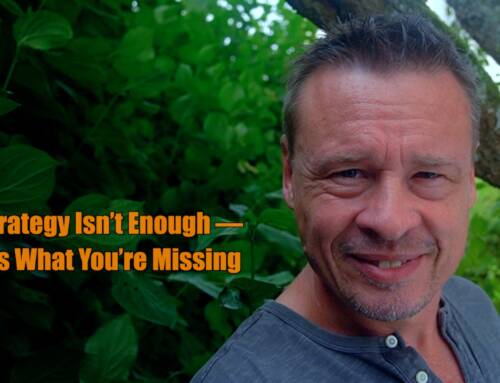Once upon a time, in a small village in Africa, there was a young woman named Miriam. Miriam had always been passionate about helping her community and had always dreamed of becoming a leader in the field of international development. She had just graduated with a degree in development studies and had landed her first job as the leader of a development project in her village.
The project was ambitious and aimed to provide access to clean water, education, and healthcare for the entire village. However, the journey was not going to be easy. The village was located in a remote area, and the infrastructure was poor. The villagers were skeptical about the project and were not very forthcoming with their support.
Miriam was determined to succeed, and she knew that it was going to take a lot of perseverance. She spent hours every day talking to the villagers, trying to understand their concerns and addressing them. She also had to navigate the complicated bureaucracy and lack of resources, which often made her feel like giving up.
Despite the challenges, Miriam never lost sight of her goal. She kept pushing forward, and with time, the villagers began to see the value of the project.
They started to come around and provide their support. Slowly but surely, the project began to take shape, and the village started to transform.
The school was built, and the children had access to education. The healthcare center was established, and the villagers had access to medical care. And most importantly, a clean water system was put in place, providing the villagers with clean and safe drinking water.
Miriam’s perseverance had paid off, and the village was now a better place to live. The villagers were grateful for the changes that had taken place, and they knew that it was all thanks to Miriam’s hard work and determination. They knew that she was a true leader and an inspiration for the community.
This story of Miriam, who through perseverance and determination was able to make a positive change in her community, is a reminder that no matter how difficult the journey may be, with hard work and perseverance, anything is possible.
End of story
The story presented is a fictional one, but it raises an important question: Is it a realistic scenario?
It’s not uncommon for a community to lead and manage development projects on their own or with the support of local government. However, it’s more likely that international donors and their agencies will become involved due to their access to necessary funds. This involvement often means that they implement projects directly or through partnerships with local entities, which can bring its own set of challenges.
Let’s examine the advantages and potential difficulties of having international development agencies involved in community development projects.
Pro involving an international development agency
Here are some possible advantages of getting an international development agency a project
Resources
International development agencies typically have access to a wide range of resources, including funding, technical expertise, and equipment.
Networking
International development agencies often have a network of partnerships and collaborations with other organizations, governments, and communities, which can help to increase the impact and reach of a project. Not for all projects this is really that useful though.
Experience
International development agencies typically have a wealth of experience in managing and implementing development projects, which can help to ensure the success and sustainability of the project.
Best practices
International development agencies often have a set of best practices and standards that they follow in their projects, this will help to improve the quality of the project and make sure that it is aligned with international standards.
Technical expertise
International development agencies usually have specialized technical expertise that can provide added value to the project and can help to implement it successfully.
Aid effectiveness
International agencies have a mandate to help the recipient countries to achieve the sustainable development goals (SDGs), and to ensure that the aid provided is effective and efficient.
Monitoring and evaluation
International development agencies have the capacity to monitor and evaluate the projects to make sure that they are on track and that the objectives are met.
The cons of using an international development agency
For argument’s sake, what could’ve gone wrong if an international development agency had taken charge of the project?
Lack of community buy-in
If an agency had taken charge of the project, the staff coming from the outside may not have had the same level of understanding or connection to the local community as Miriam, the leader from the community. This could have led to a lack of support and buy-in from the villagers for the project, which in turn could have hindered the project’s progress.
Bureaucratic delays
An example of bureaucratic delays that an international development agency may face with a project in a remote area of Africa could be the approval process for the project. The agency may have to navigate through a complex and lengthy process of obtaining approval from various government agencies and departments, which could include obtaining permits, licenses, and clearances. If an international development agency was implementing a water project in a village, the agency may have to obtain approval from the Ministry of Water, the Ministry of Health and the local government, which could take a lot of time and resources.
If a local person, such as Miriam, leads the project, they may have an advantage in navigating the bureaucratic processes involved in implementing a project in a remote area of Africa.
For example, Miriam may have a better understanding of the cultural and political context of the area and the various government agencies and departments that are involved in approving the project. She may also have established relationships and connections with local officials, which could facilitate the approval process.
Additionally, as a local, Miriam may be more familiar with the limited resources and infrastructure challenges in the area and could find creative solutions to work around these challenges. She is also likely to have a better understanding of the local languages, customs and culture which would enable her to communicate more effectively with the authorities and the community.
Limited understanding of local needs
If an international development agency takes on the project, the agency may not have had the same level of understanding of the specific needs and challenges of the local community as Miriam. This can lead to a project that does not fully meet the needs of the villagers, which hinders its effectiveness. It is important to note that international development agencies usually run some form of assessment exercise, often together with local representatives. Still, they are prone to have limited understanding of the local situation where they are about to run a project. There are many possible reasons. The most important is probably that the local context is naturally vast, making it virtually impossible to understand all the specific nuances and complexities of the area.
Dependence on external funding
If an international development agency had run Miriam’s project, it would’ve been heavily dependent on external funding. This could have made the project vulnerable to budget cuts or changes in funding priorities in the home country of the agency, never mind the issues that come with the ending of project cycles of three to five years.
Limited sustainability
International development agencies have a limited ability to ensure the sustainability of projects once they come to the end of their funding cycle. They don’t have the same level of connection to the community or understanding of local dynamics as Miriam. This could have made the project less effective in the long term, especially of the agency’s retreat.
Fixation on new ideas
International development agencies often bring their own ideas and technologies to projects, which may not always align with the needs and priorities of the local community. This can put community leaders like Miriam in a difficult position, as they may feel pressured to accept the agency’s ideas in order to secure funding for their projects. This can lead to a lack of communication and understanding between the local and international staff, causing projects to stall and frustration among all parties involved.
As highlighted in Ernesto Sirolli’s TED Talk “Want to help someone? Shut up and listen!“, it’s important for development agencies to actively seek input and feedback from local leaders and community members to ensure that projects are truly meeting the needs of the community. ”
In our fictitious story, an international development agency may have proposed a project involving the implementation of their latest invention, solar cooking stoves. However, the stoves were not practical for the local community as they were designed for use during the day when villagers were tending to their fields. Without input and feedback from the local community, the agency may have overlooked this problem, and the stoves would have been rejected by the villagers as they did not meet their cooking needs.
This example highlights the importance of open communication and a willingness to accommodate the needs of the local community in order to ensure the success of development projects. By involving the local community in the decision-making process, such issues can be avoided and projects can be tailored to meet the specific needs of the community.
The political economy
The political economy of a country is the complex set of relationships between different actors, including the government, the private sector, and civil society, and their interactions in the distribution of resources and power. Having to feed the political economy can be a major challenge for international development agencies. They are perceived as having deep pockets giving rise to desires on many a stakeholder.
One example of how feeding the political economy can be a challenge for international development agencies is when they have to negotiate with local leaders and politicians for access to resources and support for the project. These local leaders and politicians may have their own agendas and interests, which may not align with the goals of the project. They may also have a strong influence over the allocation of resources and may demand a share of the project’s benefits, in the form of bribes or kickbacks, in exchange for their support.
Another example is when the local leaders and politicians have their own business interests in the area where the project is implemented. They may try to influence the project design, implementation or even the procurement process to benefit their own interests.
A local person, such as Miriam, may have a better understanding of the political economy of the area and the dynamics between different actors, and may be better equipped to navigate these challenges. She may also have established relationships and connections with local leaders and politicians, which could facilitate the negotiation process. Additionally, as a local person, Miriam may be more invested in the success of the project and less likely to engage in activities that would undermine its effectiveness.
Looks like a no-brainer to hire locals as project leads, doesn’t it? So …
How about a mixed format?
What if Miriam had been hired as a project lead by an international development agency?
For an overseas agency using a local has some benefits:
Greater community buy-in
Miriam, being a local, would have a greater understanding of the community’s needs and challenges, and would be able to build stronger relationships with the villagers. This would lead to greater buy-in and support for the project.
Better understanding of local needs
As a local, Miriam would have a deep understanding of the specific needs and challenges of the local community and would be better equipped to design and implement a project that truly meets the needs of the villagers.
Stronger sustainability
Miriam, being a local, would have a better understanding of local dynamics and would be better equipped to ensure the sustainability of the project once it has been completed.
Better use of resources
Miriam, being a local and familiar with the area, would be able to identify the resources available to the community and would be able to use them more efficiently.
Greater accountability
As a local, Miriam would be more accountable to the community and would be more invested in the success of the project.
Cultural sensitivity
As a local, Miriam would be more familiar with the culture, customs, and values of the community and would be able to design and implement project activities in a culturally sensitive and appropriate way.
Why then is it still rare that international development agencies hire locals as project leads?
Lack of qualifications
Many locals may not have the necessary qualifications, such as degrees in development studies, international relations or a in a thematic area such as agriculture, that international development agencies typically require for project lead positions.
Lack of experience
Many locals may not have the level of experience that international development agencies typically require for project lead positions, as they may not have worked on similar projects in the past.
Language barriers
Many locals may not be fluent in the languages that are commonly used in the international development sector, such as English, which can make it difficult for them to effectively communicate with agency staff and other stakeholders.
Preference for foreign staff
International development agencies may prefer to hire foreign staff, as they may see them as more experienced, qualified, and familiar with the agency’s way of working.
Limited local capacity
International development agencies may not have the resources or capacity to train and mentor local staff to take on leadership roles.
Limited job opportunities
Many international development agencies are based in the Global North and may not have sufficient job opportunities for locals in the Global South.
Security concerns
In some countries, hiring local staff may be riskier as they may be more vulnerable to violence or threats from armed groups or government security forces.
What speaks against locals as project leads?
There can obviously be many different reasons that speak against having a local as project lead. This depends also very much on the individual situation. Here is one key point a local project lead, such as Miriam, can get entangled in the political economy, making it difficult to successfully continue the project: Pressure from local politicians, leaders and community leaders.
Miriam may face pressure from local politicians and leaders to align the project’s goals and activities with their own agendas and interests. This can lead to a deviation from the project’s original objectives, and can also make it difficult to secure the necessary resources and support for the project.
Let’s look at the use of local police officers as an analogy
There are several reasons why some countries do not use police officers in the communities where they were brought up in anymore:
Lack of trust
Community members may have lost trust in the ability of local police officers to serve and protect them, due to a history of abuse of power, corruption, or discrimination.
Perception of bias
Community members may perceive local police officers as being biased towards certain groups within the community, and may not feel that they will receive fair treatment from them.
Lack of accountability
Local police officers may not be held accountable for their actions, leading to a lack of trust and confidence in their ability to serve and protect the community.
Lack of training
Local police officers may not have received adequate training to handle the specific needs and challenges of the community — or perception thereof, leading to a lack of effectiveness in their role.
Limited resources
The police force may have limited resources and may not have the capacity to deploy police officers in every community.
Political pressure
The government may be under political pressure to remove local police officers from certain communities to reduce tensions and conflicts.
Lack of representation
The community may not be well represented in the police force and may not have a sense of belonging in the force.
What about the constantly limited budget?
Development agencies tend to claim that limited budgets are the reason for many things not happening. In the case of not hiring a local staff as project leads though this would be more of a counter indication as it is practically always much more expensive to hire an expat because of the need to cover additional expenses such as accommodation, transportation, health insurance, allowances for the education of dependents and higher salary expectations.
What could be done to increase the number of locals being hired as project leads by international development agencies?
Encourage education and training
International development agencies could invest in education and training programs for locals to help them acquire the necessary qualifications and experience for project lead positions.
Provide language training
International development agencies could provide language training for locals to help them improve their proficiency in the languages commonly used in the sector.
Promote local leadership
International development agencies could make a conscious effort to promote local leadership, by setting targets and developing strategies to increase the number of locals in leadership positions.
Provide mentoring and coaching
International development agencies could provide mentoring and coaching for locals to help them develop the skills and knowledge needed to take on leadership roles.
Foster partnerships with local organizations
International development agencies could foster partnerships with local organizations to increase the capacity of local staff and to give them more opportunities to take on leadership roles.
Increase budget allocation for local staff
International development agencies could increase the budget allocation for local staff in order to cover additional expenses such as accommodation, transportation, and health insurance as they cover for international staff.
Review recruitment policies
International development agencies could review their recruitment policies to ensure that they are inclusive and do not discriminate against locals.
Address security concerns
International development agencies could address security concerns by providing security training and by working with local communities to ensure that local staff are safe and secure in their work environment and where they and their families live.
Promote transparency and accountability
International development agencies could promote transparency and accountability by making their recruitment processes public, and by publishing annual reports on their progress in terms of promoting local leadership.
Why are these actions not taken by international development agencies?
Limited resources
International development agencies may claim not to have the resources to invest in education and training programs, language training, and mentoring and coaching for local staff. This is definitely more of a question of prioritisation. The killer argument that as much funding as possible should go to the beneficiaries is always used when a certain intervention idea is not to the liking of directors at the implementing agency or in the ministry. In development cooperation they tend to be subject matter experts in classic development areas and they tend to believe that attending to their area of specialisation benefited beneficiaries most.
Limited capacity
International development agencies may not have the capacity to develop partnerships with local organizations or to increase the budget allocation for local staff. As in the case of limited resources this is more a question of priortization.
Limited awareness
International development agencies may not be that aware of the importance of local leadership and may not have a clear understanding of how to promote it. Though this would be a bit awkward given the discussions on the topic over years.
Lack of incentives
International development agencies may not see the immediate benefits of investing in local leadership and may not have any incentives to do so. This is certainly a question of which incentives and how they are targeting what. Development cooperation is a well-oiled machinery that doesn’t easily change its setup. Incentives go into certain areas and not into others.
Preference for foreign staff
International development agencies may have a cultural bias towards foreign staff and may not see the value in hiring locals. It’s no wonder that development cooperation is expert-driven. It mitigates the issues that come with idea of development cooperation being aid.
Limited job opportunities
Many international development agencies are based in the Global North and may not have sufficient job opportunities for locals in the Global South. This is a question of where locals would be working. Head offices are in the donor countries and as local project leads are climbing the career ladder they need to get work permits for the countries where the head offices are based and they need to speak the language of the donor. This is even more of an issues for donors whose language is not as widely spoken as of those with a big colonial history.
Limited transparency and accountability
International development agencies may not have mechanisms to promote transparency and accountability, and they may not be held accountable for their progress in promoting local leadership. Development cooperation is not considered being system relevant in the donor countries. It usually only becomes an issue of wider public attention when its efforts collide with those of other ministries — as in the case of agricultural subsidies —, when it could be used to alleviate the root causes of migration, or when there are substantial misappropriations of funds. For some reason it doesn’t bother anyone that the extensive evaluation exercises conducted all over are actually very much controlled by the very projects who are evaluated. This is a systemic issue. It is a system that is supposed to bring transformation to developing countries but is itself very resistant to change.
Limited understanding of the importance of local ownership
International development agencies may not fully comprehend the importance of local ownership in all its facets and how it can increase the effectiveness, sustainability and impact of their development projects. This however would be very sad. Remember the Paris Declaration on Aid Effectiveness is from 2005. It includes ownership as one of twelve indicators.
Limited understanding of the cultural sensitivity
International development agencies may not understand how important it is to have a local staff that is familiar with the culture, customs, and values of the community to design and implement project activities in a culturally sensitive and appropriate way. Well, it really seems they don’t in practice.
What about a lack of political will in the ministries of the donor countries?
If lack of political will was a factor for the limited promotion of local leadership in international development projects, it probably manifested in one of these ways:
- A donor country’s government may not allocate enough funding for education and training programs, language training, professional communications, and mentoring and coaching for locals in the recipient countries.
- A donor country’s government may not have policies in place to support the promotion of local leadership in international development.
- The donor country’s government may not see the need to change the current system, which often relies on their own staff. This can be caused by general lack of interest to reform. Maybe because it does serve those well who operate in it. Or there is no considerable pressure from civil society.
Note: This article was created with support by artificial intelligence, viz. chatgpt.
Picture
by Emmanuel Ikwuegbu on Unsplash






Leave A Comment